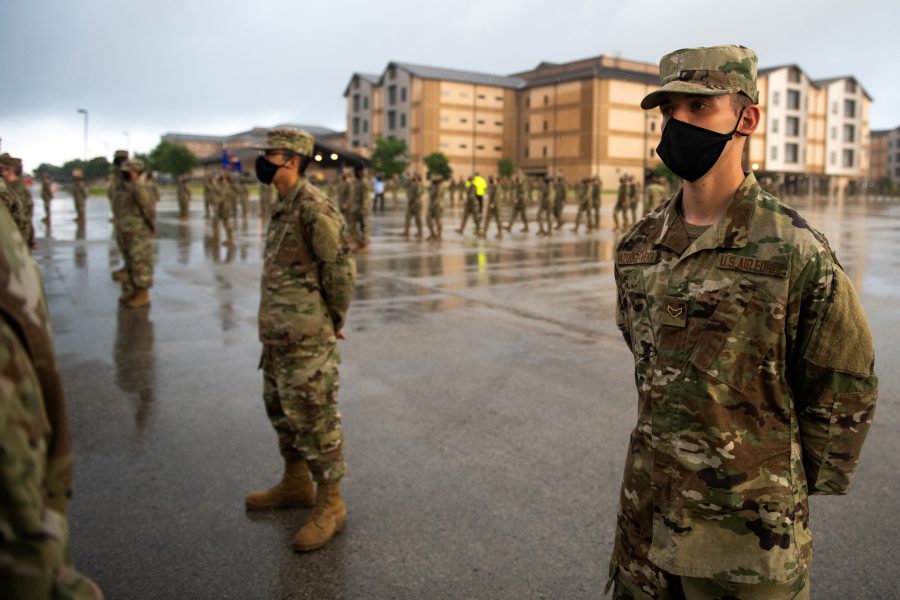Ten Airmen recently became the first to graduate Basic Military Training after learning English through an Air Force program.
The Airmen completed the Defense Language Institute English Language Center’s ECHO Flight program beta test, which replicates a program DLIELC has ran for the Army since 1975. The program has helped recruits improve their English language skills to the point where they can complete basic training. To qualify, prospective Airmen must be American citizens or green card holders. They included nine Spanish speakers from Puerto Rico and one Korean speaker from South Korea.
“The Air Force is looking at, ‘How can we be more diverse and inclusive?’ ” said Col. Kouji Gillis, commander of the DLIELC and the 637th Training Group. “[The trainees] are our future international leaders. The international community is counting on [them] in the future.”
The Air Force first started recruiting for its version of the program last spring, Gillis said. Language training at DLIELC can take as little as a couple of weeks to as long as several months, but the beta test group all completed the program in about six weeks.
Since the Army has been doing distance learning for recruits in other countries for decades, the program was able to transition to distance learning quickly, Gillis said. However, precautions due to COVID-19 did limit some of the interpersonal experiences during the ECHO Flight program, he said.
“A big part of in-classroom that you don’t get from distance learning is that in-class interaction, I’m next to my fellow student and building that relationship.”
The trainees then joined Basic Military Training at Joint Base San Antonio-Lackland, Texas, alongside other Airmen who came through the normal recruitment process.
A big test was comparing how the ECHO trainees fared in BMT compared to native English speakers, said Capt. Craig Salazar, 320th Training Squadron flight commander. The Echo Flight Airmen performed and scored well on End of Course and physical exams, he said, and two trainees even won high student leadership roles.
“I like the fact that we’re able to bring these trainees in and look at the talent that can be a great balance for our Air Force,” Salazar said. “Language shouldn’t be a barrier to joining our ranks.”
Gillis expects to start the next group of trainees in the Echo Flight program later this year. He also wants the Air Force Recruiting Service to work with the Army to learn the differences in targeting Spanish speakers versus Korean speakers, or other languages that would help the Air Force become more diverse.
“There’s a big pivot to the Indo-Pacific,” Gillis said.
The 10 Airmen graduated from BMT on June 18 and will work in various fields, from aircraft metals technology to dentistry.
“This will help a lot of people in Puerto Rico and around the world,” said one of the first Airman to complete the program, Airman 1st Class Eliezer Hernandez Vidal, in a June 26 press release. “This opportunity is a dream come true.”
Editor’s note: This story was updated at 1:41 p.m. on July 7 to correct the background of the original DLIELC program for the U.S. Army.
